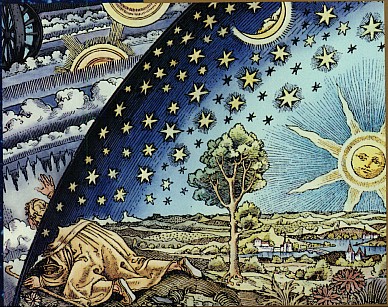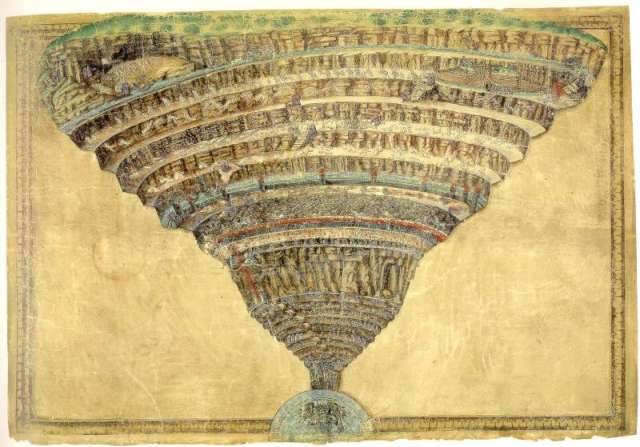Were it merely the case that all Charles Stross was offering in his novel Accelerando was a kind of critique of contemporary economic trends veiled in an exquisitely Swiftian story the book would be interesting enough, but what he gives us transcends that. What it offers up is a model for how technological civilizations might evolve which manages to combine the views of several of his predecessors in a fascinating and unique way.
Underlying Stross’s novel is an idea of how technological civilizations develop known as the Kardashev scale. It is an idea put forward by the Russian physicists Nikolai Kardashev in the early 1960s. Kardashev postulated that civilizations go through different technological phases based on their capacity to tap energy resources. A Type I civilization is able to tap the equivalent of the solar radiation present its home planet, and he thought that civilization as of 1964 had reached that level. A Type II civilization in his scheme is able to tap an amount of energy equivalent to the amount put out by its parent star, and a Type III civilization able to tap the energy equivalent to its entire galaxy. Type IV and Type V civilizations able to tap the energy of the entire universe or even multiverse have been speculated upon that would transcend even the scope of Kardashev’s broad vision. Civilizations of this scale and power would indeed be little different from gods, and in fact would be more powerful than any god human beings have ever imagined.
Kardashev lays most of his argument out in an article On the Inevitability and Possible Structures of Supercivilizations. It is a fascinating piece, and I encourage you to follow the link and check it out. The article was published in 1984, a poignant year given Orwell’s dystopia, and at the apex of the Second Cold War, with tensions running high between the superpowers. Kardashev, of course, has no idea that within a few short years the Soviet Empire will be no more. Beneath his essay one can find lurking certain Marxist assumptions about technological capacity and the cult of bigness. He seems to think that the dynamic of civilization will require bigger and bigger solutions to problems, and that there is no natural limit to how big such solutions could become. Technological civilizations could expand indefinitely and would re-engineer the solar system, galaxy, or even the universe to their purposes.
Yet, this “bigger is better” ideology is just that, an ideology, not a truth. It is the ideology that led the Soviets to pump out more and more steel without asking themselves “steel for what?” The idea of throwing more and more resources at a problem might have saved Russia during the Second World War, but in its aftermath it resulted in an extremely complex and inefficient machine that was beyond the capacity of intelligent direction, which ultimately proved itself incapable of providing a standard of living on par with the West. We are, thankfully, no longer enthralled to such gigantism.
Stross, for his part, does not challenge these assumptions, but rather build’s his story upon them. Three other ideas serve as the prominent backdrop of the story: Dyson Sphere’s, Matrioshka Brains, and the Singularity. Let me take each in turn.
In Accelerando, as human civilization rapidly advances towards the Singularity it deconstructs the inner planets and constructs a series of spheres around the sun in order to capture all of the sun’s energy. These, so called, Dyson Sphere’s are an idea Stross borrows from the physicist Freeman Dyson, an idea that Kardashev directly cites in his On the Inevitability and Possible Structures of Supercivilizations. Dyson developed his idea back in 1960 in his article Search for Artificial Stellar Sources of Infra-Red Radiation, which proposed 24 years before Kardashev, that one of the best ways to find extraterrestrial intelligence would be to look for signs that solar systems had undergone similar sorts of engineering. Dyson himself found the inspiration for his sphere’s in Olaf Stapledon’s brilliant 1937 novel Star Maker, which was one of the first novels to tackle the question of the evolution of technological society and the universe.
A second major idea that serves as a backdrop of Stross’s novel is that of a Matrioshka Brain. This was an idea proposed by the computer scientist and longevity proponent, Robert Bradbury, who in sad irony, died in 2011 at the early age of 54. It is also rather telling and tragic that in light of his dream of eventually uploading his mind into the eternal electronic cloud, all of the links I could find to his former longevity focused entity Aeiveos appear to be dead links, seeming evidence that our personhood really does remain embodied and disappears with the end of the body.
Matrioshka Brains builds off of the idea of Dyson Spheres, but while the point of the latter is to extract energy the point of the former is to act as vast spheres of computation nestled one inside the other like the Russian dolls after which the Matrioshka Brain is named. In Accelerando, human-machine civilization has deconstructed the inner planets not just to capture energy, but to serve as computers of massive scale.
Both of these ideas, Dyson Sphere’s and Matrioshka Brain put me in mind of the idea of the crystal spheres which the ancients imagined surrounded and circled the earth and held the planets and stars. It would be the greatest of ironies if the very science which had been born when men such as Copernicus, Kepler, and Galileo overthrew this conception of the cosmos gave rise to an engineered solar system that resembled it.
The major backdrop of Accelerando is, of course, the movement of human begun technological civilization towards the Singularity. In essence the idea of the Singularity is that at some point the intelligence of machines that originated with human technological civilization will eventually exceed human intelligence. Just as human beings were able to design machines that were smarter than themselves, machines will be able to design machines smarter than themselves, and this process will accelerate to an increasing degree with the time between the creation of one level of intelligence and the next falling to shorter and shorter intervals. At some point the reality that emerges from this growth of intelligence becomes unimaginable to current human intelligence- like a slug trying to understand humanity and its civilization. This is the point of the singularity- an idea Vernor Vinge in his 1993 article The Coming Technological Singularity: How to Survive in the Post-Human Era, borrowed from the physics of black holes. It is the point over the event horizon over which no information can pass.
If you follow any link in this article I would highly recommend that you read Vinge’s piece, for unlike the optimist Ray Kurzweil, Vinge is fully conscious of the existential risks that the Singularity poses and the philosophical questions it raises.
Stross’s novel, in its own wonderful way, also raises, but does not grapple, with these risks and questions. They remain for us to think our way through before our thinking is done for us.

